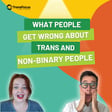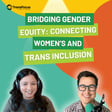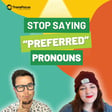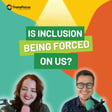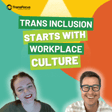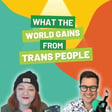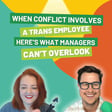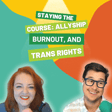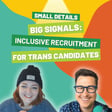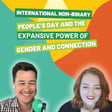
What''s in a Name?
For trans and non-binary people, choosing a name can be one of the first steps in recognising who we are - and asking the world to do the same.
In this episode, we explore the deep meaning that names can hold. You’ll hear personal stories about the search for a name that feels like home, and the joy and affirmation that come when it finally fits. We also talk about what it feels like when the wrong name is used - by people, by systems… and by those who mean well but still miss the mark.
We get into the messy realities too: navigating mismatches between legal and chosen names, how to talk about past names with care and what organizations can do when their systems fall short.
This conversation is about identity, belonging and what it means to be truly seen. Whether you’re trans, non-binary or someone trying to better support the people around you, this episode offers plenty to reflect on. Got some ideas about how we can improve the podcast?! We’ve made a short, painless survey to find out what you think, what you want more of... and what topics you'd love to hear us cover next. Let us know your thoughts here! ___________
Want to get in touch? Contact us at podcast@transfocus.ca
Join us on social media: LinkedIn | Instagram | TikTok | Threads | Facebook

